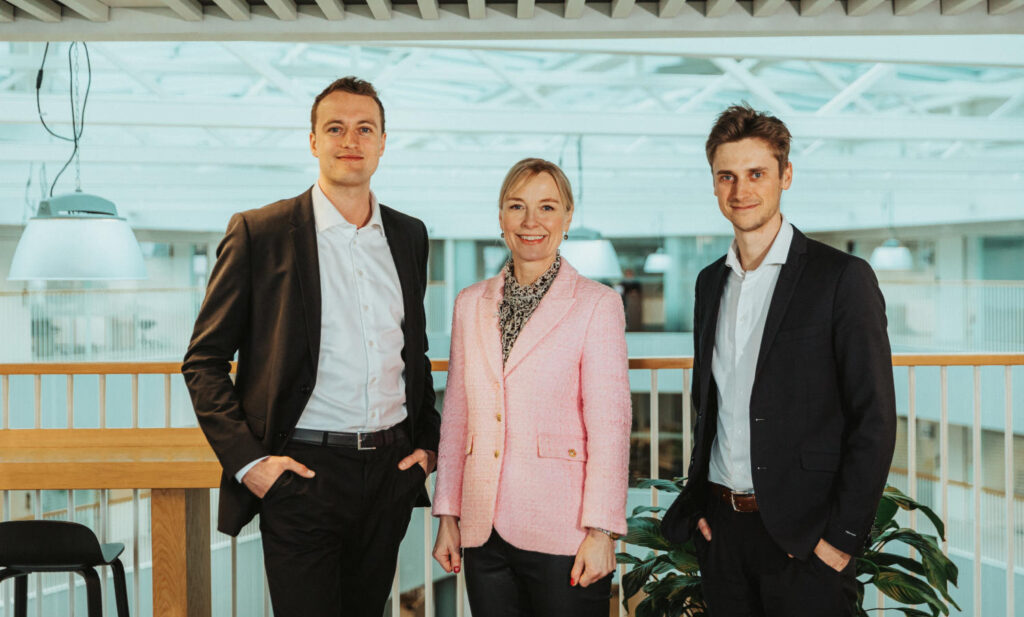The world is constantly turning and rapidly changing, and enterprises will have to change direction or completely redefine themselves if they want to be able to attract the most talented candidates for job openings. Conventional benefits like high wages or an impressive job title will no longer suffice; more and more candidates are demanding purpose. Meaningfulness. Impact.

“When we started The Hub in 2015, this was not a topic of conversation anywhere, but since then many employers have integrated the Global Goals, i.e. the Sustainable Development Goals, SDGs, into their DNA, and I dare say that it is no longer possible to establish a successful startup or attract talents without a clearly defined mission. It’s all part of a greater whole,” says Ninna Wicki Olsen-Stryhn, CEO of The Hub, a recruitment platform for startups.
Three years ago, the platform was used by 600 Nordic SDG enterprises. This number has now increased to 1,655, which is reflected in the actions of the candidates: At The Hub, the number of applications received by SDG enterprises exceeds the number of applications received by other enterprises by on average 25 per cent.
And though the trend has mostly applied to the younger generation, the older candidates now seem to be adopting the purpose-driven agenda as well.
“Five years ago, this phenomenon was thought to affect only young people, but more and more candidates between 35 and 50 seek out jobs based on these parameters. It’s no longer a youthful thing to chase after purpose, rather it’s becoming a general candidate expectation of employers,” the CEO of The Hub explains.
The senior candidates have become parents
Emil Fuglsang, co-founder and COO (Chief of Operations Officer) in Matter, a supplier of sustainability data and advanced analysis platforms for the financial sector, has noticed the same development. Matter’s mission of driving a positive change draws especially young talent to the fintech startup.

“We’ve never had any difficulty attracting young candidates – even the most sought-after candidates with a lot of other job offers choose to come work with us because they are looking for a meaningful job,” Fuglsang says and elaborates:
“The same applies to students and interns, who were previously more drawn to large, well-known companies and brands to boost their CV. Now it’s our impression that it’s considered just as prestigious to work for a purpose-driven company – almost regardless of size.”
There is no one answer as to how this trend has found its way from the younger to the older generation, but parenthood has something to do with it, Fuglsang believes.
“Previously, when recruiting for senior positions, it was more difficult to entice the older generation away from high wages and lucrative benefits packages, but this has also become easier and easier.”
“We often hear that their awareness of these challenges has increased because of their children questioning what they do. They want to be able to come home from work and look their children in the eye,” the COO of Matter says.
Still some way to go
As the major challenges for society have increasingly become part of the corporate agenda, the so-called ESG evaluations (environmental, social and governance) have become very popular. They have been developed as a response to the fact that financial accounts no longer suffice for the value assessment of large corporations.
In June, the global accounting firm PwC announced an investment of about DKK 78 bn and 100,000 new jobs over a period of five years to meet the demand from enterprises and organisations for various kinds of ESG certificates.
Despite this development, there is still some way to go, according to Olsen-Stryhn – especially where investors are concerned.
“We still see that the majority of startups don’t market themselves as purpose-driven. Most startups have realised that this does not open the doors to venture capital investment funds as they are still a bit reluctant about this new trend. Angel investorsEn angel investor er en velhavende person, der tilbyder penge, mentorskab og ekspertise til start-ups og nystartede virksomheder. De påtager sig risici for et ... More, who are more likely to include soft values like the feelings associated with a project into their considerations, are easier to convince,” she says.
“Many investor networks and capital investment funds still have ”old-school” decision-makers, who would like to support a good cause, but struggle to see how profit and purpose can go hand in hand. So, at this stage, it’s necessary to keep challenging their beliefs and providing more information. To that end, we need a number of success stories and to keep talking about it,” Olsen-Stryhn claims.
This article is a part of the magazine ‘From University to UnicornUnicorn er et udtryk, der bruges til at beskrive en startup-virksomhed, der har nået en værdiansættelse på 1 milliard dollars eller mere. More 2021’. You can read the full magazine here.









 Kære læser, du er meget velkommen til at dele vores artikler på sociale medier, linke eller referere til artikler eller content på TechSavvy.media. Men ønsker du helt eller delvist at kopiere indhold fra sitet må det kun ske efter aftale med vores redaktion på editorial@techsavvy.media.
Kære læser, du er meget velkommen til at dele vores artikler på sociale medier, linke eller referere til artikler eller content på TechSavvy.media. Men ønsker du helt eller delvist at kopiere indhold fra sitet må det kun ske efter aftale med vores redaktion på editorial@techsavvy.media.
 Kære læser, du er meget velkommen til at dele vores artikler på sociale medier, linke eller referere til artikler eller content på TechSavvy.media. Men ønsker du helt eller delvist at kopiere indhold fra sitet må det kun ske efter aftale med vores redaktion på editorial@techsavvy.media.
Kære læser, du er meget velkommen til at dele vores artikler på sociale medier, linke eller referere til artikler eller content på TechSavvy.media. Men ønsker du helt eller delvist at kopiere indhold fra sitet må det kun ske efter aftale med vores redaktion på editorial@techsavvy.media.